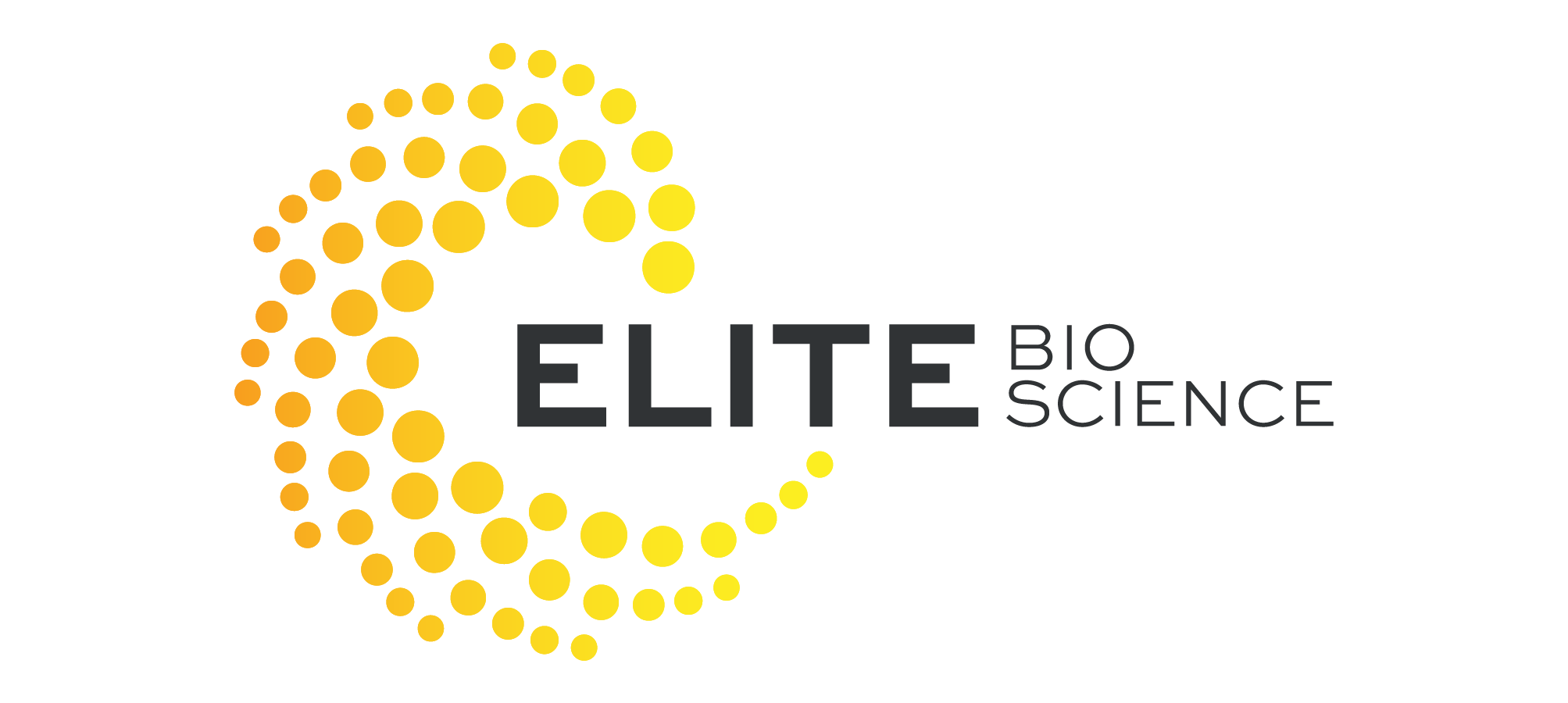Top Vitamins for Glowing Skin: Boost Your Radiance Today

Everyone talks about wanting that healthy, natural glow, but the real secret isn't just in the expensive bottle you put on your skin. True, lasting radiance comes from how you nourish your body from the inside out.
Think of it like building a house. You need a strong, solid foundation of key nutrients before the paint and decor—your serums and moisturizers—can make a real difference. When you fuel your body correctly, your skin reflects that inner health with a vibrancy you can actually see.
This guide will walk you through the essential vitamins that act as the true building blocks for healthy skin.
Your Skin Is Built From The Inside Out
We'll start with the heavy hitters, what I call the 'Core Four'—vitamins A, C, D, and E. Understanding their distinct roles is the first step toward getting that luminous complexion you're after.
The Core Four Vitamins For Skin Health
Each of these vitamins has a unique job to do, and they work together to create the foundation for healthy skin.
- Vitamin A (The Rejuvenator): This is the master of renewal. It helps speed up cell turnover to shed old, dull skin and reveal the fresh, smooth skin underneath.
- Vitamin C (The Brightener): Absolutely essential for producing collagen, the protein that keeps skin firm, plump, and even-toned. It's your go-to for fighting dullness.
- Vitamin D (The Defender): More than just the "sunshine vitamin," it helps regulate skin cell growth and repair, playing a huge role in calming inflammation.
- Vitamin E (The Protector): Think of this as your skin's personal bodyguard. It's a powerful antioxidant that defends your cells against environmental damage from things like pollution and UV rays.
But how do you know if you're getting enough of these power players? If you suspect a nutritional shortfall might be dulling your glow, targeted lab work can give you clear answers. You can learn more by exploring professional options for testing for vitamin deficiency.
This infographic gives a great visual of how these top vitamins work together to keep your skin in optimal health.
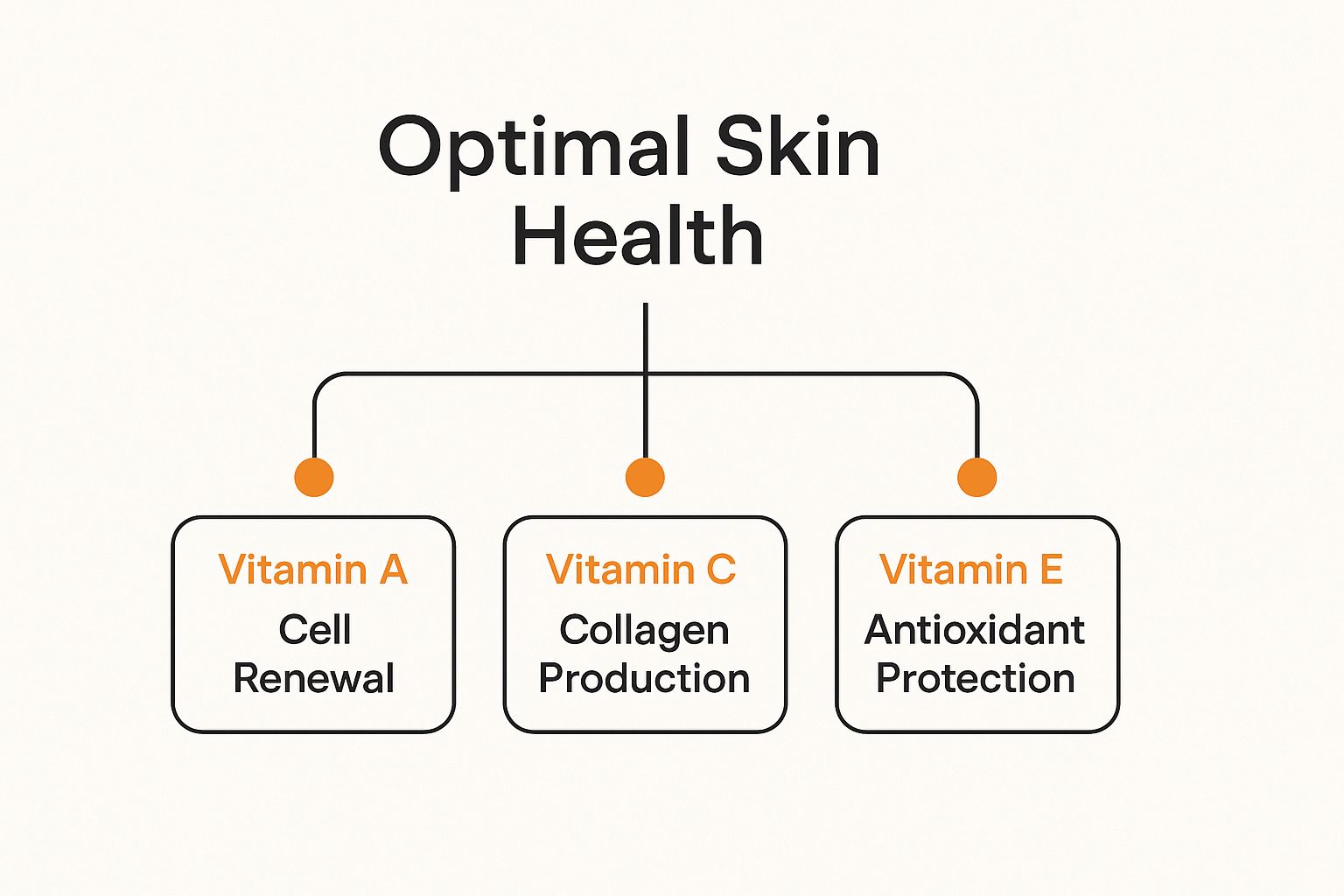
As you can see, it's a team effort. Each vitamin has a specialized job—from cellular repair to antioxidant defense—that contributes to your skin's overall vitality.
Vitamin C: Your Skin's Master Antioxidant
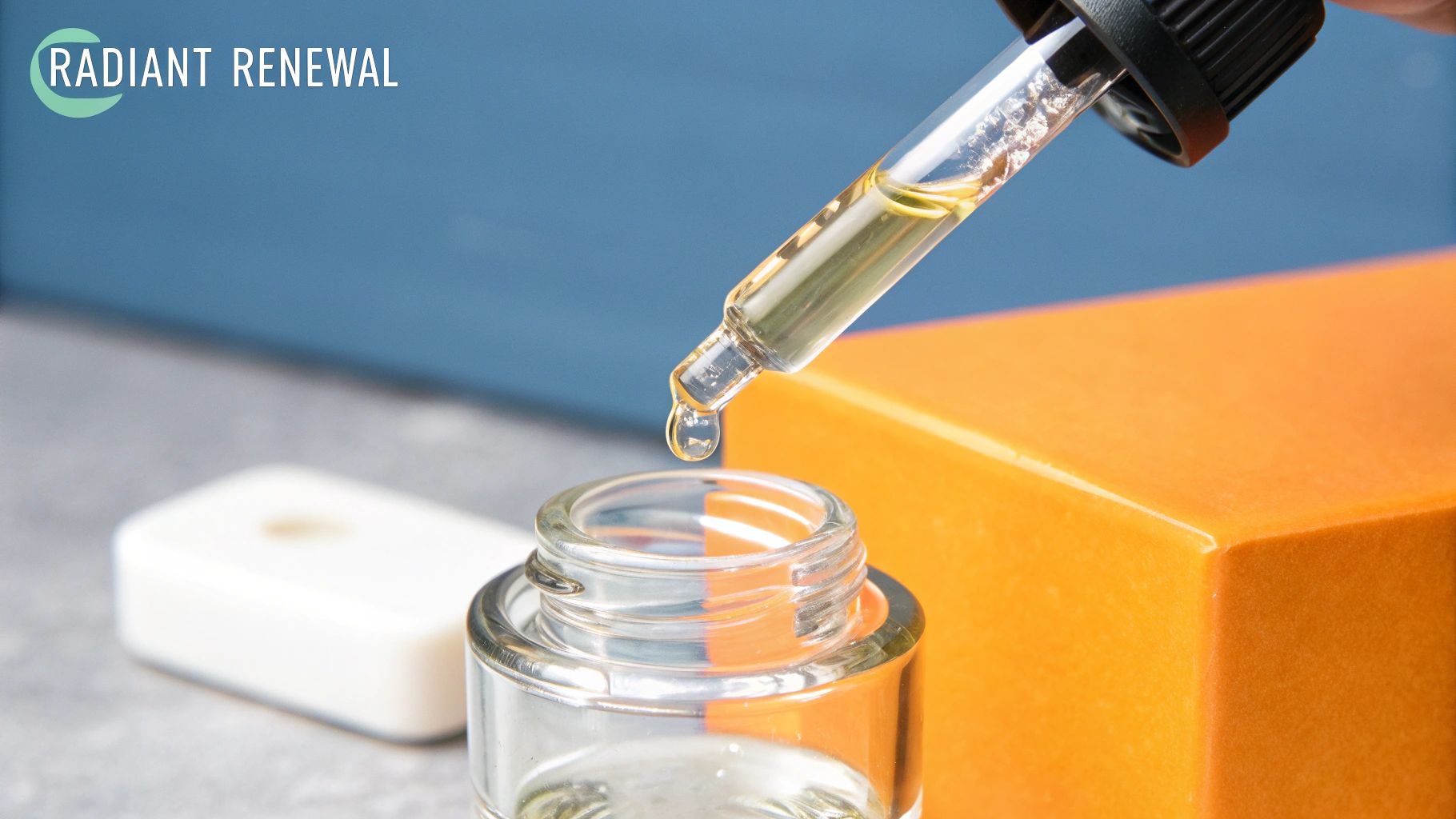
If you could ask your skin what its favorite nutrient is, there's a good chance it would pick Vitamin C. It’s one of the most celebrated ingredients out there for getting a truly radiant complexion, acting as both a defender and a builder for your skin cells.
Think of it as your skin’s personal security guard and construction crew, all rolled into one powerful molecule.
Its main job? Acting as a master antioxidant. Every single day, your skin is under attack from environmental stressors like UV radiation and pollution. These create nasty, unstable molecules called free radicals that go around damaging skin cells, breaking down your precious collagen, and fast-tracking the aging process.
Vitamin C steps in and neutralizes these threats, essentially forming a protective shield that keeps your skin looking fresh and vibrant. But it doesn’t just play defense.
Fueling Collagen and Brightening Your Complexion
Vitamin C is also a critical player in producing collagen, the protein that gives your skin its structure and firmness.
Collagen is basically the scaffolding that holds your skin up, keeping it plump, firm, and youthful. As we get older, our natural collagen production takes a nosedive, which is when we start seeing fine lines and sagging. Vitamin C is an essential cofactor for the enzymes that build and stabilize collagen molecules, making it absolutely indispensable for maintaining that smooth, bouncy texture.
Without enough Vitamin C, your body's collagen production pretty much grinds to a halt. This makes it a non-negotiable for anyone who wants firm, resilient, and glowing skin.
Beyond its structural support, Vitamin C is famous for its brightening powers. It helps block the enzyme responsible for making melanin—the pigment that causes dark spots and hyperpigmentation. Regular use can fade existing spots and stop new ones from forming, leading to a much more even and luminous skin tone.
This one-two punch of firming and brightening is exactly why Vitamin C is a cornerstone of any routine focused on the best vitamins for glowing skin.
Topical Application Versus Dietary Intake
To really get the most out of this vitamin, you need a two-pronged approach: nourishing from the inside while protecting from the outside.
- Dietary Sources: Your body can't make Vitamin C on its own, so you have to get it from your diet. Think brightly colored fruits and vegetables—they're your best bet.
- Topical Application: Applying Vitamin C directly to your skin in a serum delivers a concentrated dose right where you need it, targeting issues like dullness and sun damage head-on.
For instance, studies have shown that topical applications of Vitamin C in concentrations of 3-10% for at least 12 weeks can reduce wrinkle depth and skin roughness. This works because it helps counteract sun damage by ramping up collagen synthesis and fixing abnormal proteins caused by UV exposure. You can explore the full findings on Vitamin C's topical benefits to learn more about the science.
When you combine a diet rich in citrus fruits, bell peppers, and leafy greens with a daily Vitamin C serum, you create a powerful synergy. This inside-out strategy ensures your skin has the resources to build collagen internally while getting direct antioxidant protection on the surface—the perfect recipe for a healthy, lasting glow.
Vitamin A: The Engine of Skin Renewal
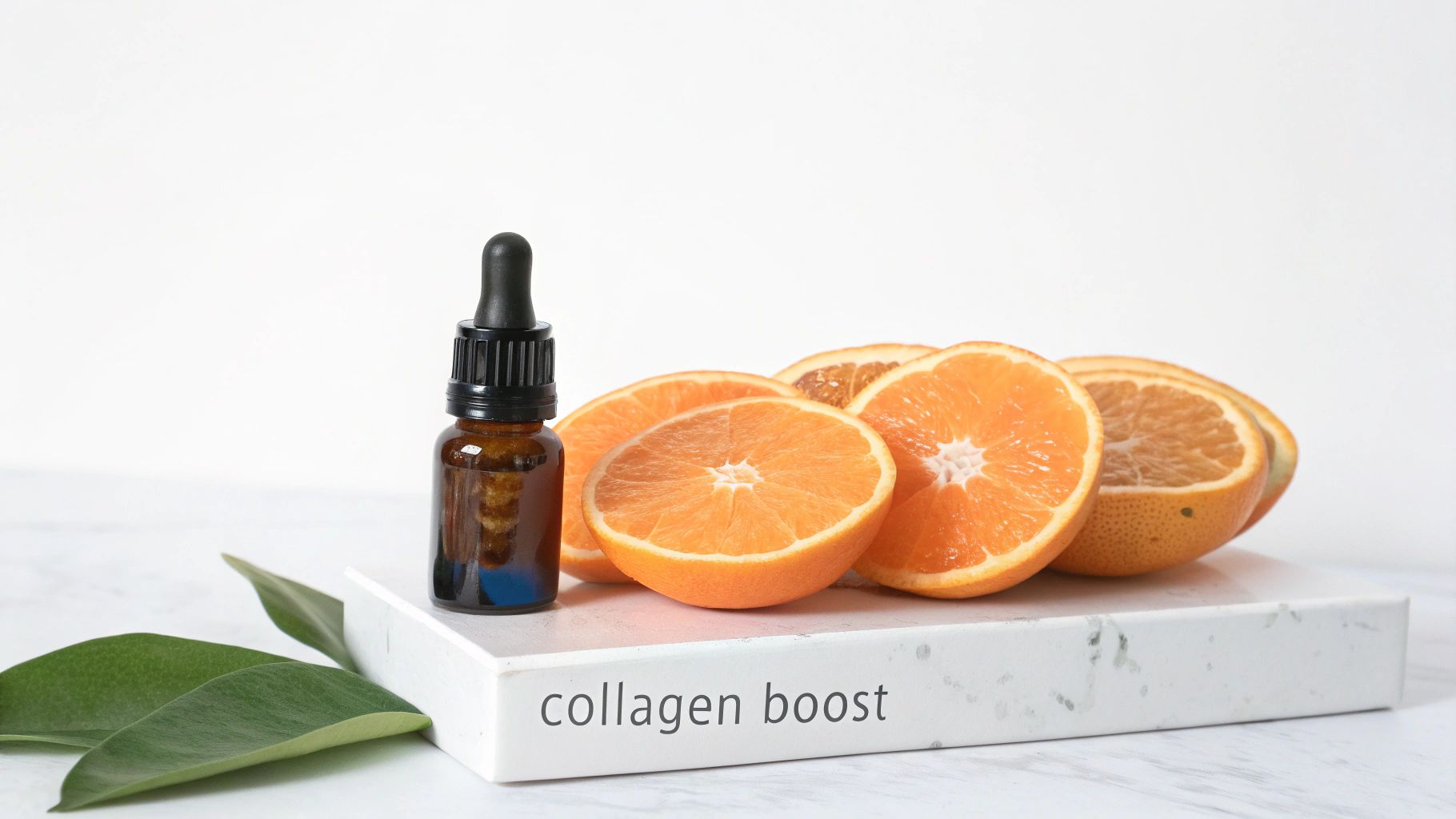
While Vitamin C is busy brightening and defending, Vitamin A works behind the scenes as your skin’s personal renewal manager. Think of it as the engine driving your skin's regeneration process, constantly working to speed up cell turnover.
This process is like a natural exfoliation from within. It helps shed the old, dull cells clinging to the surface, revealing the fresher, more radiant skin hiding just beneath. It’s this revitalizing action that makes Vitamin A—and its famous derivatives like retinol—so celebrated for smoothing fine lines, refining texture, and creating a more youthful glow.
Put simply, it keeps your skin's renewal cycle running on time, preventing that buildup of dead cells that leads to a lackluster complexion.
Understanding The Two Forms of Vitamin A
Not all Vitamin A is created equal. It mainly comes in two distinct forms, and knowing the difference will help you make smarter choices for your skin, both on your plate and in your products.
- Pre-formed Vitamin A (Retinoids): This is the active form of the vitamin that your body can use immediately. It's found in animal-based foods like eggs, fatty fish, and liver.
- Provitamin A (Carotenoids): Found in colorful plant foods, this form—most notably beta-carotene—needs to be converted by your body into active Vitamin A first.
Your body is incredibly resourceful and can efficiently convert beta-carotene from plants into the active retinol it needs. This means filling your plate with a rainbow of vegetables is a direct investment in your skin's renewal process.
Vitamin A is crucial for more than just renewal; it also helps regulate sebum (oil) production. This makes it a hero nutrient for those with oily or acne-prone skin, as it helps prevent clogged pores and promotes a clearer, more balanced complexion.
Beyond just the surface, Vitamin A plays a critical role in maintaining your skin's overall health. Its derivatives, particularly beta-carotene, even act as a natural photoprotective agent. When you eat it, it integrates into your skin and helps shield it from UV radiation, which can reduce sunburn sensitivity and prevent premature dryness.
Just think about this: a single half-cup of sweet potatoes provides over six times the daily recommended value of Vitamin A, showing just how powerful whole foods can be. You can discover more about how nutrients protect your skin on health.harvard.edu.
Best Food Sources for a Vitamin A Boost
To really fuel your skin’s renewal engine, you'll want to incorporate a mix of both retinoids and carotenoids into your diet.
- For Carotenoids: Think vibrant and colorful. Carrots, sweet potatoes, spinach, kale, and bell peppers are packed with beta-carotene.
- For Retinoids: Look to animal sources. Eggs, dairy products, and fatty fish like salmon provide the ready-to-use form of this essential nutrient.
By making sure your diet is rich in these foods, you’re giving your skin the fundamental tools it needs for regeneration, oil balance, and a naturally healthy glow. For anyone looking for the best vitamins for glowing skin, this is a cornerstone strategy.
Key Supporting Nutrients for a Healthy Glow
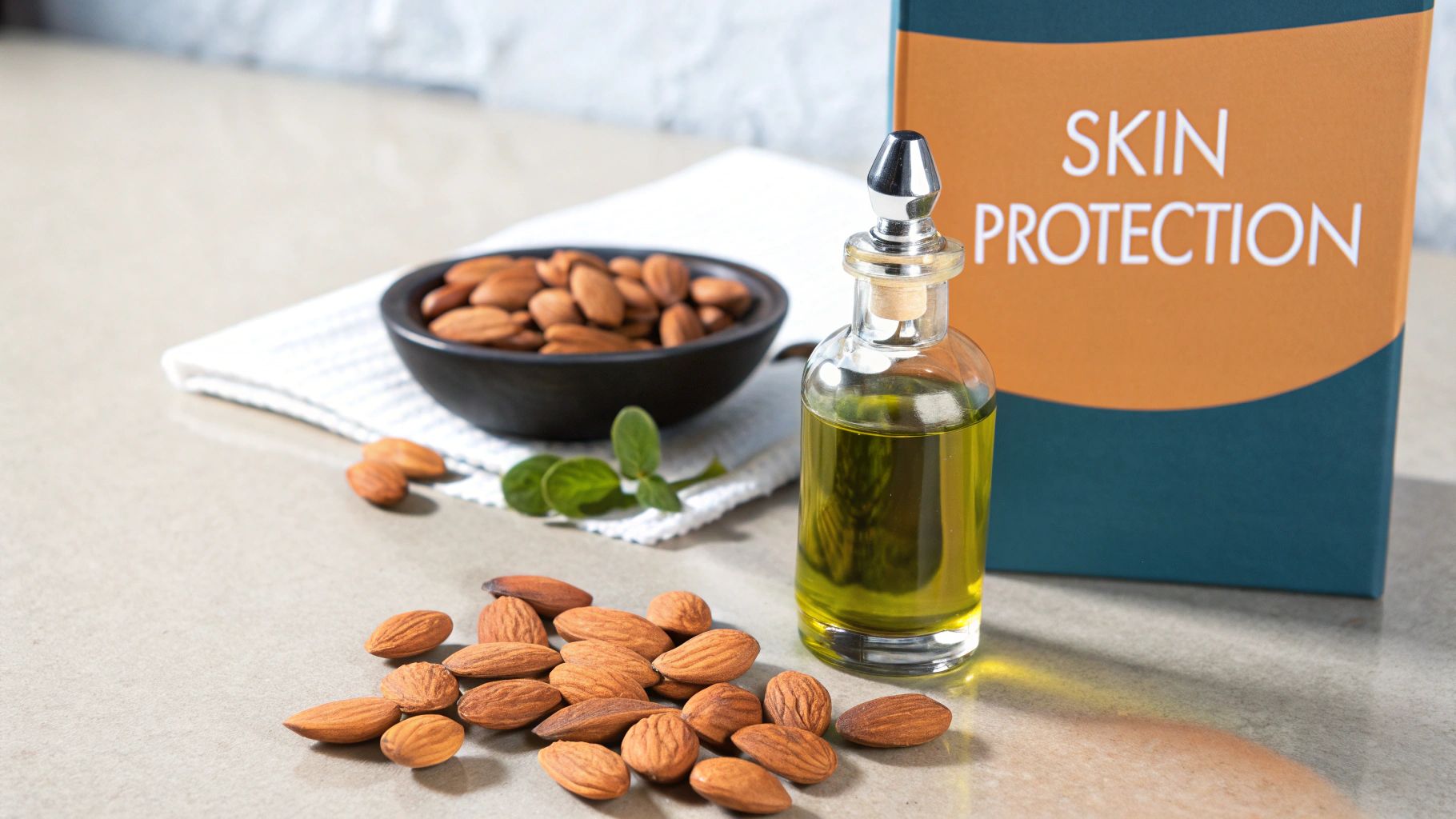
While Vitamins A and C get all the attention, a whole team of supporting nutrients works tirelessly behind the scenes to give you that truly healthy glow. Think of them as the expert crew that keeps the main stars shining.
These essential vitamins and minerals handle everything from antioxidant defense to reinforcing your skin’s fundamental structure. Without them, your complexion just can't reach its full potential for radiance and resilience.
Vitamin E The Ultimate Protector
Vitamin E is your skin's personal bodyguard. It’s a powerful, fat-soluble antioxidant, and its main job is to protect your delicate skin cell membranes from oxidative stress. It steps in to neutralize those damaging free radicals from UV rays and pollution before they can wreak havoc.
But it doesn’t go it alone. Vitamin E and Vitamin C have a fantastic working relationship; after Vitamin E neutralizes a free radical, Vitamin C swoops in to "recharge" it, getting it ready to fight again. This teamwork makes them an unstoppable duo for defending your skin.
You can find this protective nutrient in:
- Nuts and Seeds: Almonds and sunflower seeds are absolute powerhouses.
- Leafy Greens: Spinach and Swiss chard will give you a healthy dose.
- Avocados: This fruit delivers both Vitamin E and healthy fats to help your body absorb it.
The B-Vitamin Complex for Barrier Strength
The B-vitamin family is a group of multitasking powerhouses, crucial for keeping your cells energized and functioning properly. For skin health, two members in particular steal the show.
Niacinamide (Vitamin B3) is a darling in the skincare world for a reason. It strengthens the skin's natural barrier, helping it lock in moisture and stay hydrated. It also improves skin elasticity, calms redness, and keeps oil production in check, making it a versatile ally for just about every skin type.
Biotin (Vitamin B7) is famous for its role in strong hair and nails, but it’s just as critical for your skin. It helps in the production of fatty acids that nourish the skin, helping to maintain a clear, healthy complexion. A deficiency can sometimes show up as dry, scaly skin.
The Guardian Minerals Zinc and Selenium
Minerals are every bit as critical as vitamins for achieving that coveted glow. Zinc and selenium are two of the most important minerals for your skin's defense and repair systems.
Zinc acts as your skin's on-call repair crew. It's essential for healing wounds, calming down inflammation, and protecting against UV damage. It also helps control oil production, making it a key player in keeping breakouts at bay.
Selenium is another potent antioxidant mineral that protects skin from oxidative stress and helps maintain its integrity. The recommended daily intake is just 55 micrograms, but this tiny amount is a powerhouse. It helps neutralize free radicals from sun exposure, minimizing DNA damage and inflammatory responses in your skin cells. You can explore more about selenium's role in protecting skin health on pmc.ncbi.nlm.nih.gov.
These minerals, working alongside vitamins, are the building blocks for strong, resilient skin cells and a healthy collagen network. If you’re looking to support your body's natural production, our guide on natural ways to boost collagen offers more strategies you can easily incorporate. By making sure your diet includes these supportive nutrients, you’re completing the puzzle for truly luminous, healthy skin.
Building Your Daily Glowing Skin Routine
Knowing which vitamins are best for glowing skin is just the starting point. The real magic happens when you turn that knowledge into consistent, everyday habits. The key to unlocking a truly lasting radiance is creating a routine that nourishes your skin from the inside out.
Think of it as a tag-team effort. Your diet supplies the fundamental building blocks your body needs to create healthy new skin cells. At the same time, your skincare routine delivers targeted, protective ingredients directly to the surface. When both are working in harmony, the results are far more powerful than either could achieve alone.
A Sample Day of Skin-Nourishing Meals
A vitamin-rich diet doesn’t have to be complicated or restrictive. The simplest approach is to focus on whole, colorful foods to ensure you’re getting a broad spectrum of nutrients.
Here’s what a day of eating for a healthy glow could look like:
- Breakfast: Kick things off with a smoothie packed with spinach (Vitamins A & E), strawberries (Vitamin C), and a scoop of almond butter for healthy fats. This combo gives you a powerful antioxidant boost right from the start.
- Lunch: Go for a large salad with mixed greens, topped with grilled salmon (Vitamin D and healthy fats), bell peppers (Vitamin C), and a sprinkle of sunflower seeds (Vitamin E).
- Dinner: A baked sweet potato (loaded with beta-carotene) served with roasted chickpeas (Zinc) and broccoli makes for a deeply satisfying, skin-supporting meal.
- Snack: A handful of walnuts or a small bowl of Greek yogurt provides extra nutrients and helps keep you feeling full between meals.
This isn't just about ticking off individual vitamins; it's about building a holistic dietary pattern that supports your skin's overall health and vitality from within.
Pairing Your Diet with Topical Skincare
To complement your internal nutrition, a smart topical routine delivers active vitamins directly where they are needed most. And when you apply them can make a huge difference.
The most effective skincare strategy is a synergistic one. What you apply to your skin should work in concert with what you consume, creating a 24-hour cycle of protection and renewal.
Here's a simple yet highly effective schedule to follow:
- Morning Routine (The Shield): Your morning is all about protection. After cleansing, apply a Vitamin C serum. It acts as a potent antioxidant, neutralizing the free radicals from UV exposure and pollution you'll encounter all day. Always follow up with a moisturizer and, most importantly, a broad-spectrum sunscreen.
- Evening Routine (The Renewal): Nighttime is when your skin shifts into repair mode. This makes it the perfect time to use a Vitamin A product, like retinol. It gets to work accelerating cell turnover and stimulating collagen production while you sleep, with less risk of sun sensitivity.
By aligning your diet and skincare, you create a powerful cycle. You're fueling renewal from the inside and protecting that fresh, new skin from the outside, making sure all your efforts lead to a visible, healthy glow.
And if you’re using supplements to fill any gaps, understanding timing is equally crucial. You can learn more about aligning your supplement schedule in our guide to the best time to take vitamins for maximum benefit.
Common Questions About Vitamins For Skin
Let's be honest: navigating the world of vitamins can feel like a full-time job, especially when you're just trying to figure out what will give your skin that healthy glow. It’s completely normal to have questions about what actually works, what’s just hype, and how to get results without going overboard.
Think of this section as a clear, straightforward conversation. We’ll tackle the most common questions and give you the expert-backed answers you need to build a routine that feels right for you.
Can I Get All My Skin Vitamins From Food?
For most people, the answer is a resounding yes. A well-rounded diet packed with a colorful variety of fruits, vegetables, healthy proteins, and good fats provides a fantastic foundation for radiant skin. Foods like berries, leafy greens, nuts, and fish are true skin-health powerhouses.
But let's face it, life happens. Things like dietary restrictions, a high-stress lifestyle, or certain health conditions can create nutritional gaps that are tough to fill with food alone.
In those specific cases, a targeted supplement can be a huge help in making sure your skin gets everything it needs. The trick is to avoid playing a guessing game. Always chat with a healthcare professional first—they can help you figure out if supplements are actually necessary and recommend the right ones at the correct dosages.
How Long Until I See Results From My Diet?
When it comes to seeing real change in your skin, patience and consistency are your two best friends. Your skin has a natural renewal cycle where old cells are shed and new ones take their place, and this process typically takes about 28 to 40 days.
Because of this built-in timeline, you really need to stick with your new nutritional habits for at least one to three months to start noticing significant improvements.
The first changes are usually subtle. Maybe your skin feels a little more hydrated, or your tone looks a bit more even. That lasting, visible radiance you’re after is the result of sustained effort over time, not an overnight miracle. Be patient with your body, and the benefits of nourishing your skin from the inside out will become undeniable.
Are There Risks From Taking Too Many Vitamins?
Absolutely. While vitamins are essential, the "more is better" mindset can be downright dangerous. It all comes down to understanding the difference between water-soluble and fat-soluble vitamins.
Fat-soluble vitamins, especially Vitamins A and E, are stored in your body's fatty tissues. If you take them in excessive amounts, they can build up to toxic levels over time, leading to serious health issues.
Even water-soluble vitamins like Vitamin C, which your body can flush out more easily, can cause problems like an upset stomach in very high doses. To keep things safe and simple, follow these ground rules:
- Food First: Always prioritize getting your nutrients from whole foods.
- Supplement Smartly: Only use supplements to address a specific deficiency that’s been diagnosed by a professional.
- Follow the Rules: Stick to the recommended daily allowance (RDA) and only under a doctor's guidance.
The smartest and most effective strategy is always to fuel your body with a balanced diet first. Think of supplements as a targeted support system, not the main event. This approach ensures you get all the glow-boosting benefits without any of the risks.
At Elite Bioscience, we believe in empowering you with the tools to achieve optimal health from the inside out. Our injectable vitamin therapies are designed to deliver high-quality, targeted nutrients to support your wellness goals. Explore our solutions and take control of your health journey today at https://elitebioscience.co.
QUICK SEARCH
Make an account today to start your journey towards a better and healthier lifestyle.
